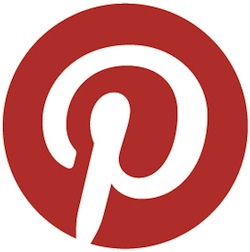Secure your place at the Digiday Publishing Summit in Vail, March 23-25

Just over two years old, Pinterest doesn’t have a business model in place. One place it might want to start is with a contest product for brands.
Brands on the photo-sharing platform are already using it for contests, asking consumers to “Pin-In to Win It.” In the past six months alone, brands like KFC, Barney’s New York and Lands End have run pinning contests. The upside of these is they drive interaction at a cheap cost. What’s more, unlike Facebook, which has onerous contest rules, brands can launch a contest on Pinterest with less advance planning and a smaller budget.
KFC ran the “So Good, So Sweet” contest in April, asking moms to share, read and vote on their favorite “Life is Sweet” parenting moments on Pinterest. Re-pinners were entered to win prizes such as chef services, house cleaning services and a Flip video camera.
“It was very successful for us,” said Stephanie Mattingly, national media manager at KFC, noting re-pinning is native to the Pinterest experience.
Such contests can also boost a brand’s audience on Pinterest. Right now, there’s no ad system there, meaning brands are left with few options for jump-starting their presences there. “Contests are low-hanging fruit in terms of a tactic to achieve that goal,” said Orli LeWinter, director of social marketing strategy at 360i.
Whether such efforts foster long-term loyalty is another matter. Plenty of brands have taken such shortcuts to build up their fan bases on other platforms, such as Facebook and Twitter. Long term, of course, Pinterest and other social platforms require a solid content strategy.
But there’s clearly an opening for Pinterest to add an easy contest product that will appeal to some brands. It also fits with the current vogue for “native advertising” on social platforms by mimicking an existing consumer behavior, like, in this case, re-pinning photos.
“It’s possible that Pinterest could drive additional revenue through integrated and/or contextual advertising (e.g., promoted pins, akin to promoted tweets) by charging users for advanced features or brands for branded campaigns,” LeWinter said.
More in Marketing

Yahoo pauses IAB membership amid a series of quiet cost-saving measures
Yahoo pulls IAB board memberships, following job cuts as PE-owner reportedly reconsiders ad tech investments.

Target looks to e-commerce, advertising investments to help grow the business
Technology is one of the most important areas in which Target will invest with the hopes of returning to profit growth.

‘The conversation has shifted’: The CFO moved upstream. Now agencies have to as well
One interesting side effect of marketing coming under greater scrutiny in the boardroom: CFOs are working more closely with agencies than ever before.





